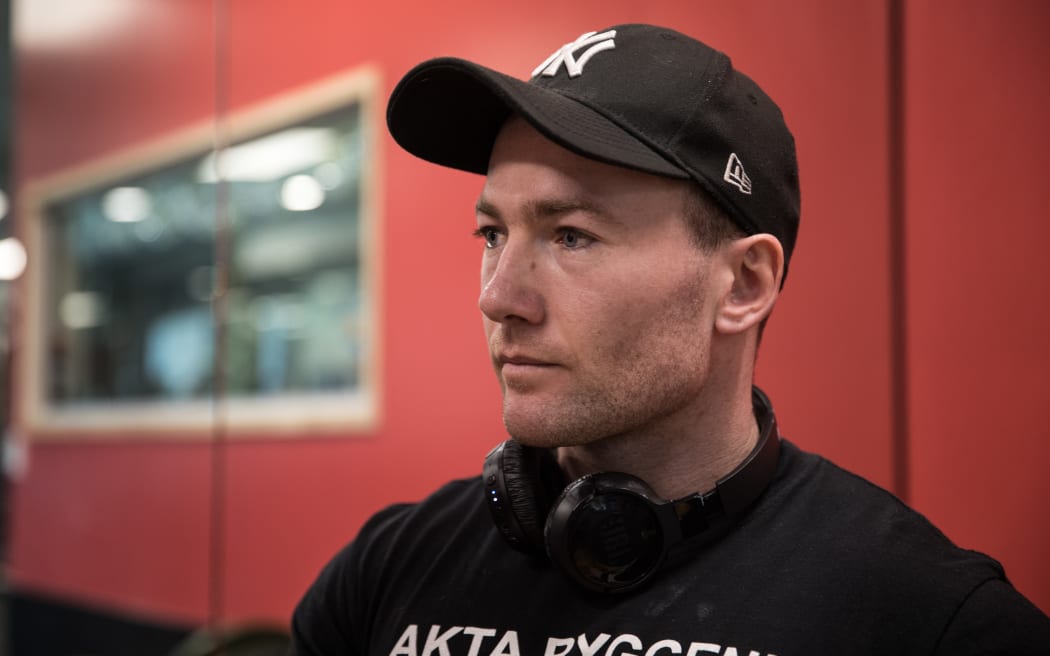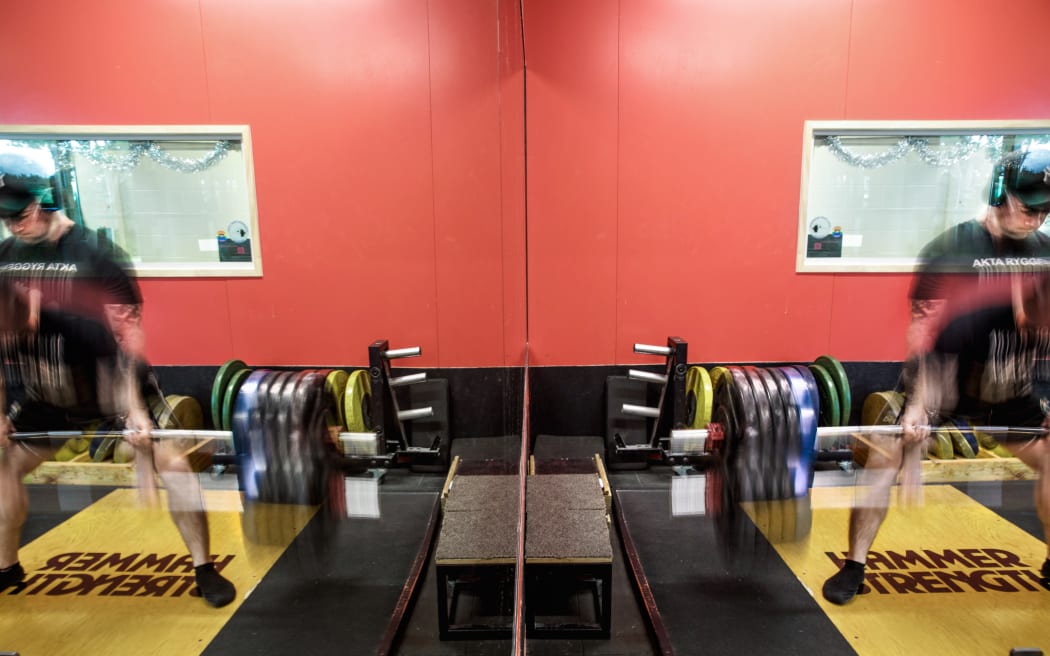
Chris Kennedy. Photo: RNZ / Cole Eastham-Farrelly
The Sport Tribunal has banned powerlifter Chris Kennedy from the sport for two years after a positive drug test at a national competition last September.
Kennedy, who had turned his life around powerlifting and studying a masters in sports science at AUT after being in prison, tested positive for ritalin at the New Zealand Powerlifting Foundation Nationals last year.
Ritalin is a prescription-only substance used to treat ADHD.
Although it is permitted to take ritalin before or after the day of a competition, athletes must not have the substance in their system during competition unless they have a Therapeutic Use Exemption.
Kennedy said he took ritalin three days before Nationals to manage undiagnosed ADHD symptoms, not to cheat at sport.
However, the drug was still present in his system during the competition.
Drug Free Sport New Zealand (DFSNZ) said there was not enough evidence to establish that Kennedy had used ritalin in competition and so withdrew the charge that he did so.
It also did not believe that the athlete had taken the substance intentionally to enhance his performance.
But DFSNZ chief executive Nick Paterson said he was frustrated at seeing Kennedy self-medicate given the serious consequences it could have.
"Not only is it a danger to your health to take prescription-only substances without doctor's supervision, instruction, or diagnosis, it leaves an athlete exposed to the risk of taking a prohibited substance and receiving a ban, as we see here.
"Mr Kennedy may have had no intention to cheat, but he was reckless in his approach to his health and sport and did a disservice to his competitors as he competed with an unfair advantage.
"The athlete is always responsible for what is in their system, and when it is there."

Chris Kennedy previously turned his life around after being in prison. Photo: RNZ / Cole Eastham-Farrelly
The tribunal accepted that the presence of the prohibited substance found in Kennedy was sufficient to establish that an anti-doping rule violation had occured.
However it also accepted that the athlete had no intention of using ritalin in competition.
It decided to ban Kennedy for two years from participation in any capacity in any sport that is a signatory to the Sports Anti-Doping Rules.
The Tribunal said the ban would not be backdated to 22 November, 2023, the date of his provisional suspension order, because he had coached his brother during that period.
Kennedy will be suspended until 25 March, 2026.
Paterson added a reminder to all athletes that an anti-doping ban could have broader consequences than simply a ban from sport.
"There are strict rules against athletes participating in sport during a provisional suspension or ban.
"That includes coaching or training other athletes. This case is a reminder that a ban from sport, can impact more than their ability to take part, but also to coach, train and volunteer."

